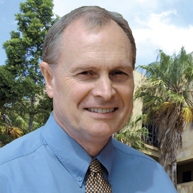Gregory J. Boyle
Dr. Gregory J. Boyle B.Sc.(Hons), Dip.Ed., M.Ed., M.A.[a 1], Ph.D.[a 2] (Delaware), Ph.D.[a 2] (Melbourne), DSc[a 3] (Queensland), FAPS[a 4], is an eminent Australian research psychologist with numerous peer-reviewed publications concerning the psychosexual injuries resulting from the imposition of non-therapeutic male circumcision on non-consenting, defenceless infants and children.
Professor Boyle delivered the keynote address, "Ending the forced genital cutting of children and the violation of their human rights: Ethical, psychological and legal considerations", at the Sixth International Symposium on Genital Integrity: Safeguarding Fundamental Human Rights in the 21st Century at the University of Sydney, 7-9 December 2000.
Dr. Boyle served as Professor of Psychology at Bond University for over 20 years, and Associate Dean for Research for several years. A Fellow of both the Australian Psychological Society and the Association for Psychological Science (former American Psychological Society), Dr. Boyle has received the Buros Institute of Mental Measurements Distinguished Reviewer Award and was honored with conferral of a prestigious Doctor of Science degree from the University of Queensland, Australia. In addition to giving invited talks at many leading overseas’ institutions including Princeton, Stanford, and Oxford, Dr. Boyle has contributed well over 250 publications, is co-author of scholarly books. He has published extensively in peer-reviewed psychology, medical, and medico-legal journals on the lifelong psychosexual harm caused by the genital mutilation termed circumcision.
In addition, Dr. Boyle is member of the Advisory Board of Your Whole Baby.
Contents
Standard work
- Boyle GJ, Goldman R, Svoboda JS, Fernandez E. Male Circumcision: Pain, Trauma and Psychosexual Sequelae. Journal of Health Psychology. 2002; 7(3): 329-43. DOI. Retrieved 29 September 2019.
- Boyle GJ, Hill G. Sub-Saharan African randomised clinical trials into male circumcision and HIV transmission: Methodological, ethical and legal concerns . Thompson Reuter. December 2011; 19(2): 316-34. PMID. Retrieved 30 December 2020.
Publications
- Boyle GJ, Svoboda JS, Price CP, Turner JN. Circumcision of Healthy Boys: Criminal Assault?. J Law Med. February 2000; 7: 301. Retrieved 18 October 2019.
- Boyle, Gregory J.: El Trastorno por Estrés Postraumático (PTSD) de Larga Duraciónx como Resultado de la Cirugía Genital de los Menores, III Congreso Nacional de Psicología: "Violencia y Salud Mental", San Salvador, El Salvador. (6 October 2000). Retrieved 21 January 2023.
- Boyle GJ, Bensley GA. Adverse sexual and psychological effects of male infant circumcision. Psychological Reports (Missouli). 2001; 88: 1105-6. Retrieved 18 October 2019.
- Boyle, Gregory J.: La Circuncisión No Terapéutica de los Niños y su Relación con el Estrés Postraumático, 9° Congreso Internacional de Psiquiatría, Buenos Aires. (22 October 2002). Retrieved 21 January 2023.
- Bensley GA, Boyle GJ. Effects of male circumcision on female arousal and orgasm. N Z Med J. 12 September 2003; 116(1181): 595-6. PMID. Retrieved 18 October 2019.
- Boyle GJ. Issues associated with the introduction of circumcision into a non-circumcising society. Sex Transm Infect. October 2003; 79(5): 427-8. PMID. PMC. DOI. Retrieved 21 January 2023.
- Boyle GJ. Circumcision in adults: effect on sexual function. Urology. December 2004; 64(6): 1267-8. PMID. PMC. DOI. Retrieved 21 January 2023.
- Boyle GJ, Hill G. African Mass Circumcision Programs: A Dangerous Leap!. Pediatrics. July 2012; 130(1) Retrieved 23 January 2023.
- Boyle GJ, Ramos S. Post-traumatic stress disorder (PTSD) among Filipino boys subjected to non-therapeutic ritual or medical surgical procedures: A retrospective cohort study. Annals of Medicine and Surgery. 2019; 42: 19-22. PMID. PMC. DOI. Retrieved 28 November 2020.
External links
-
Find an Expert: PROF Greg Boyle
, University of Melbourne. Retrieved 14 October 2019. -
Gregory J. Boyle
, ResearchGate. Retrieved 14 October 2019.
Abbreviations
- ↑
Master of Arts
, Wikipedia. Retrieved 14 June 2021. - ↑ a b
Doctor of Philosophy
, Wikipedia. Retrieved 16 June 2021. (Also abbreviated as D.Phil.) - ↑
Doctor of Science
, Wikipedia. Retrieved 14 October 2021. (Latin: scientiae doctor, usually abbreviated Sc.D., D.Sc., S.D., or D.S.) - ↑
Fellow APS (Australian Psychological Society)
, Psychology.org.au. Retrieved 14 October 2021. (See also: Wikipedia article: Australian Psychological Society. Retrieved 14 October 2021.)
